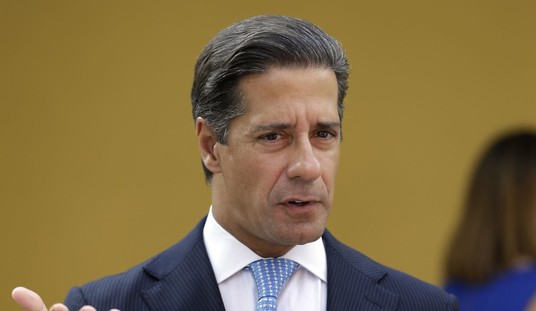China booted a reporter from The Wall Street Journal from the country after not renewing his press credentials. Chun Han Wong had to leave China today when his visa also expired.
WSJ’s Editor-in-Chief Matt Murray was, understandably, not happy with the decision.
It is disappointing that the Chinese government has denied our reporter press credentials. Our journalism has been fair and accurate. We of course remain committed to covering the important story of China with the usual high standards that our readers expect.
The Chinese government declined to comment on the decision but the best guess is they’re furious about a report by Wong and co-author Philip Wen looking at a cousin of President Xi Jinping. Australian authorities are investigating Ming Chai on claims he may have taken part in a money-laundering scheme connected with high-stakes gambling. There are also questions on Chai’s possible ties to organized crime and whether Crown Resorts got help within a portion of the Australian government to obtain visas for certain Chinese nationals.
Wong and Wen’s report portrays Xi as a hypocritical leader. He’d told Chinese government officials to keep an eye on their relatives to make sure they weren’t involved in corruption. Yet here comes his first cousin who galavanted around Australia and, per WSJ, made a big deal about the familial connection. A connection which does not appear to be fantastical as Xi was close to Chai’s father, Qi Ruixin, before the latter’s death in 1987. The Wall Street Journal noted Xi had no clue what Chai is alleged to have done which means he’s not following the rules he wants his followers to adhere.
Things got messier after China asked The Wall Street Journal to spike their story on Chai. WSJ, correctly, spurned the pressure and put out the report. The consequence of publishing the truth to the world, and the people of China, appears to be a blacklisting.
This was not the first time China decided to boot a reporter based on their stories. The Xi regime decided to deny the visa of Buzzfeed journalist Megha Rajagopalan last year. China’s claim is Rajagopalan, an American, wasn’t a resident foreign correspondent. However, she had been reporting extensively on China’s treatment of Uighur Muslims. The country also denied a visa application for an American freelancer who criticized the Chinese Communist Party. They’d previously forced Al Jazeera to shut down its English-language bureau over a visa renewal denial. China does not want reporters in their country who are inclined to point out serious problems with the government or the ruling party.
However, it would not be wise if foreign news organizations decided to ignore the corruption problems in China. Bloomberg suffered horrible reputation damage in 2013 when it was discovered co-founder and now former editor-in-chief Matthew Winkler spiked several investigative stories on China because he feared the organization would be kicked out of the country. Winkler’s justification was Bloomberg could still report what was going on in China if they decided to ignore unseemly details and stories which made government officials look bad. This reasoning goes against the very nature of journalism and the notion “the truth” reigns supreme.
The Wall Street Journal made the right decision to not kill the story on Xi’s cousin. The president’s hypocrisy needed exposure despite the consequences. It was not worth sacrificing principle for the chance of future success. Whoever takes over the China beat for The Wall Street Journal will hopefully take the same risks as Wong. Wong, himself, will hopefully find a new region to cover even if it means completely rebuilding his contacts.
There are plenty of lessons the United States can learn from this situation. The first is diplomatic pressure by cajoling China to change its policy over reporters and news outlets. The policy will not change overnight but is still an avenue worth taking. The second is making sure governmental entities in the United States do not imitate China’s policy regarding any negative story or commentary. It may be understandably frustrating for politicians and supporters when they take public beatings in the press, but the alternative is far worse in the grand scheme of things.








Join the conversation as a VIP Member